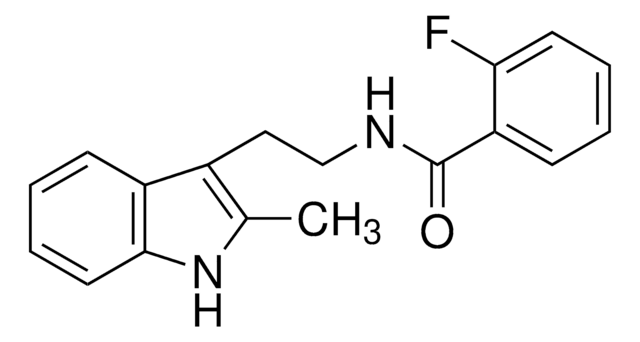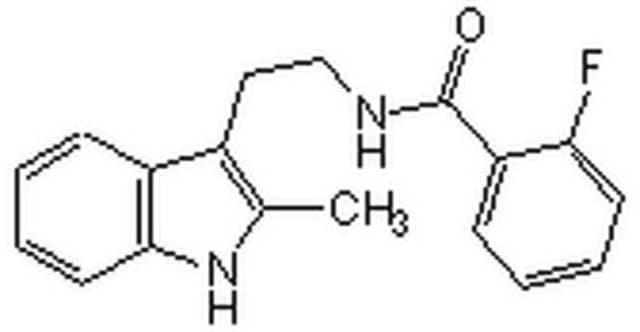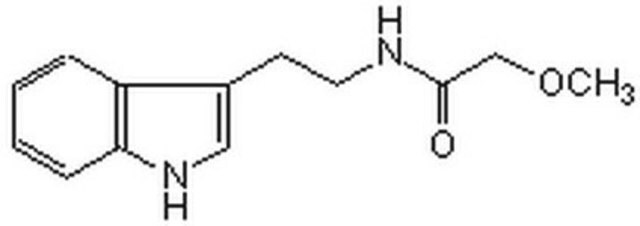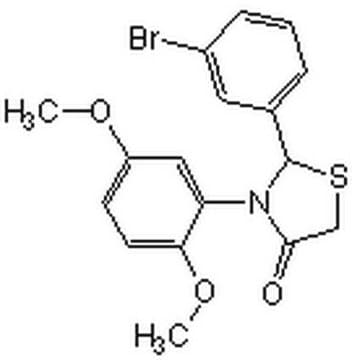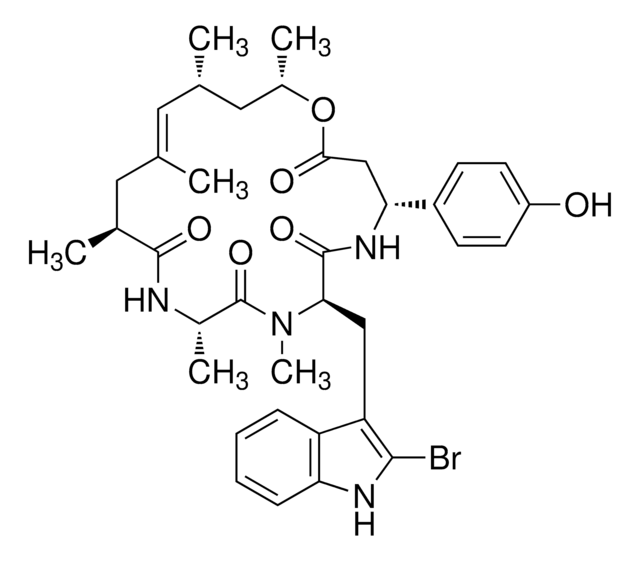C9124
CK-869
≥98% (HPLC)
Synonym(s):
2-(3-Bromophenyl)-3-(2,4-dimethoxyphenyl)-4-thiazolidinone, CK 869, CK-0157869
About This Item
Recommended Products
Quality Level
Assay
≥98% (HPLC)
form
powder
color
white to light gray
solubility
DMSO: 10 mg/mL, clear
storage temp.
2-8°C
SMILES string
S1C(N(C(=O)C1)c3c(cc(cc3)OC)OC)c2cc(ccc2)Br
InChI
1S/C17H16BrNO3S/c1-21-13-6-7-14(15(9-13)22-2)19-16(20)10-23-17(19)11-4-3-5-12(18)8-11/h3-9,17H,10H2,1-2H3
InChI key
MVWNPZYLNLATCH-UHFFFAOYSA-N
Application
- to treat cultured mammalian cells and study its in vitro and in vivo effects on microtubule assembly
- to induce membrane blebbing in HT1080 fibrosarcoma cells
- to treat KDM3A-null cells and study the relation between actin dynamics and ciliogenesis
Biochem/physiol Actions
Storage Class Code
11 - Combustible Solids
WGK
WGK 3
Flash Point(F)
Not applicable
Flash Point(C)
Not applicable
Regulatory Listings
Regulatory Listings are mainly provided for chemical products. Only limited information can be provided here for non-chemical products. No entry means none of the components are listed. It is the user’s obligation to ensure the safe and legal use of the product.
JAN Code
C9124-VAR:
C9124-25MG:
C9124-BULK:
C9124-5MG:
Choose from one of the most recent versions:
Certificates of Analysis (COA)
Don't see the Right Version?
If you require a particular version, you can look up a specific certificate by the Lot or Batch number.
Already Own This Product?
Find documentation for the products that you have recently purchased in the Document Library.
Customers Also Viewed
Our team of scientists has experience in all areas of research including Life Science, Material Science, Chemical Synthesis, Chromatography, Analytical and many others.
Contact Technical Service